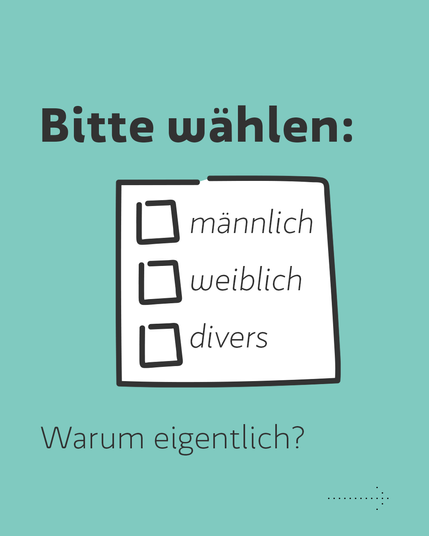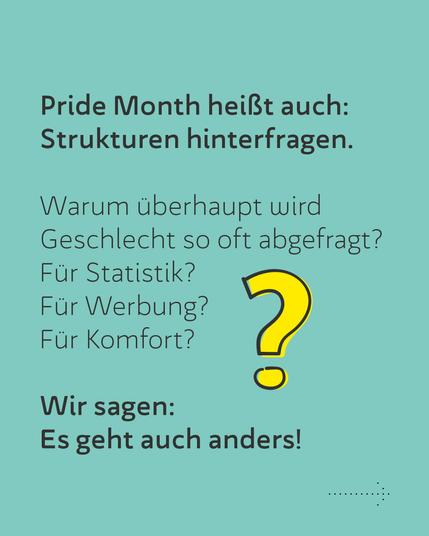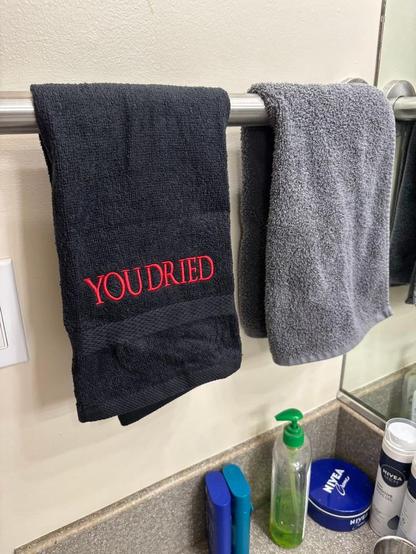| Pronomen/Pronouns | sie, ihr / she, her |
| 🗺️ | Berlin (Posts in German and English) |
Blume
- 250 Followers
- 162 Following
- 3.3K Posts
#WEtell #wetellmobilfunk #nachhaltigkeit #nachhaltig #fairness #transparenz #PrideMonth
Beispiele für die Qualität der "Übersetzung" finden sich in der Amazon-Rezi von Janine Malz (das ist die ursprünglich angefragte Übersetzerin, die das ganze öffentlich gemacht hat.)
Ausnahmsweise mal ein Link zu Insta:
Ihr erinnert euch an die Übersetzerin, die publik gemacht hat, dass Bastei Lübbe sie für eine "KI"-Übersetzung angefragt hat und sie das mit ausführlicher Begründung abgelehnt hat? Gab mehrere Artikeldazu.
Nun ist das Buch erschienen - "KI"-"übersetzt".

Janine Malz on Instagram: "Ihr erinnert euch bestimmt noch an die Anfrage von @bastei_luebbe? Ich sollte eine 4-teilige Romanserie aus den Niederlanden nicht etwa übersetzen - sondern eine KI-Übersetzung lektorieren. Statt der üblichen 20 € pro Normseite für eine Übersetzung bot man mir 5 € fürs Lektorat. Statt eines Übersetzungsvertrags sollte ich einen Redaktionsvertrag erhalten. Ergo: Keine vertraglich zugesicherten Urheberrechte am deutschen Text, keine Beteiligung am Buchverkauf. Eine Lose-Lose-Situation. Ich verfasste eine lange Antwort, in der ich darlegte, warum dieses Vorgehen meinen Beruf kaputtspart, und machte sie öffentlich. Daraufhin gab es eine Welle der Solidarität von Übersetzer*innen, aber auch von Autor*innen, Illustrator*innen, Synchronsprecher*innen und anderen Künstler*innen, deren Arbeit durch KI bedroht ist. Und zwar doppelt: Milliardenschwere Tech-Konzerne wie OpenAI und Meta klauen urheberrechtlich geschützte Daten (Texte, Bilder, Musik, etc.) und trainieren damit ihre KI, ohne die Urheber*innen zu fragen, geschweige denn zu vergüten. Und dieselbe KI wird dann genutzt, um Buchcover, Songs oder eben Übersetzungen per Mausklick zu erstellen - das ist billiger als echte Menschen für ihre kreative Arbeit zu vergüten. Es ist aber vor allem kurzsichtig: Denn damit entziehen wir Kunst ihrer Lebensgrundlage und schaffen sie allmählich ab. * Jetzt also ist die Romanreihe um den Magnolienhof von @susanmuskee erschienen und ich frage mich - hat die Autorin sich bei der Zustimmung zur KI-Übersetzung gefragt, wie sie es fände, wenn man ihre Urheberrechte übergeht und ihr ein Viertel des üblichen Honorars anbietet? Ich frage mich, erkennt der Verlag die Ironie, wenn er eine KI-Übersetzung nutzt, aber ins Impressum schreibt, der Text dürfe nicht zum KI-Training herangezogen werden? Ich frage mich, hatte die*der Kolleg*in - die*den ich nicht namentlich nenne - keine Skrupel, in einem notorisch unterbezahlten Beruf einen mies bezahlten Auftrag zu übernehmen aus einer Sprache, die er*sie nicht einmal beherrscht? Ich bin ganz ehrlich - ich bin wütend. BeHeartbeat, wenn hier "mit Leidenschaft lektoriert" wird, sagt ihr implizit: Hier übersetzt niemand mehr. Danke für nichts."
621 likes, 119 comments - janine.malz on July 4, 2025: "Ihr erinnert euch bestimmt noch an die Anfrage von @bastei_luebbe? Ich sollte eine 4-teilige Romanserie aus den Niederlanden nicht etwa übersetzen - sondern eine KI-Übersetzung lektorieren. Statt der üblichen 20 € pro Normseite für eine Übersetzung bot man mir 5 € fürs Lektorat. Statt eines Übersetzungsvertrags sollte ich einen Redaktionsvertrag erhalten. Ergo: Keine vertraglich zugesicherten Urheberrechte am deutschen Text, keine Beteiligung am Buchverkauf. Eine Lose-Lose-Situation. Ich verfasste eine lange Antwort, in der ich darlegte, warum dieses Vorgehen meinen Beruf kaputtspart, und machte sie öffentlich. Daraufhin gab es eine Welle der Solidarität von Übersetzer*innen, aber auch von Autor*innen, Illustrator*innen, Synchronsprecher*innen und anderen Künstler*innen, deren Arbeit durch KI bedroht ist. Und zwar doppelt: Milliardenschwere Tech-Konzerne wie OpenAI und Meta klauen urheberrechtlich geschützte Daten (Texte, Bilder, Musik, etc.) und trainieren damit ihre KI, ohne die Urheber*innen zu fragen, geschweige denn zu vergüten. Und dieselbe KI wird dann genutzt, um Buchcover, Songs oder eben Übersetzungen per Mausklick zu erstellen - das ist billiger als echte Menschen für ihre kreative Arbeit zu vergüten. Es ist aber vor allem kurzsichtig: Denn damit entziehen wir Kunst ihrer Lebensgrundlage und schaffen sie allmählich ab. * Jetzt also ist die Romanreihe um den Magnolienhof von @susanmuskee erschienen und ich frage mich - hat die Autorin sich bei der Zustimmung zur KI-Übersetzung gefragt, wie sie es fände, wenn man ihre Urheberrechte übergeht und ihr ein Viertel des üblichen Honorars anbietet? Ich frage mich, erkennt der Verlag die Ironie, wenn er eine KI-Übersetzung nutzt, aber ins Impressum schreibt, der Text dürfe nicht zum KI-Training herangezogen werden? Ich frage mich, hatte die*der Kolleg*in - die*den ich nicht namentlich nenne - keine Skrupel, in einem notorisch unterbezahlten Beruf einen mies bezahlten Auftrag zu übernehmen aus einer Sprache, die er*sie nicht einmal beherrscht? Ich bin ganz ehrlich - ich bin wütend. BeHeartbeat, wenn hier "mit Leidenschaft lektoriert" wird, sagt ihr implizit: Hier übersetzt niemand mehr. Danke für nichts.".
🌿 Was? Zugang zu einem Garten innerhalb von 300 Metern
🚘 Wie? Umwandlung von 10.000 Parkplätzen
📈 Warum? 🧊 mehr Kühlung 📉 weniger Luftverschmutzung 🧘Erhöhung von physischer, mentaler und sozialer Gesundheit der Einwohner*innen
🔗 https://www.derstandard.de/story/3000000265175/gartenstrassen-stadtwald-flaniermeilen-paris-probt-die-gruene-revolution
Got another one for you. Buffets? The single least accessible means of providing food to a large number of people.
My perspective, as a cane-user: I am already one-handed. So immediately, I have the problem: how do I hold my plate, while also filling my plate? Rarely is there room on the buffet for a plate to be set down. Almost no one ever thinks to offer assistance to people who have disabilities in using the buffet.
Before I even get to the plate, of course, I have the problem of how they bring people to line up. If, as is often the case, they call it table by table, then I am almost certainly, by random chance, going to end up in a long line waiting to access the buffet. Standing is painful to me, even more so than walking.
So I'm exhausted and sore. I arrive at the buffet. I get a plate and cutlery, which somehow I manage to carry in one hand. I have to balance the plate on my cane-arm while trying to pile food on it with my non-dominant hand.
Moving down the buffet, I come to the dessert tables! Hurrah! Only the only way to get a dessert is to have...another plate!
So I get no dessert, because I don't have a free hand to get it with.
And that's just one person's disability. Wheelchair user? Reaching those bowls up high on the table is going to be hard. Visually impaired? How do you know what you're putting on your plate? What if there's something in it you're allergic to? Gonna read the card maybe?
Missing an upper limb? See above re: being effectively one-handed. Palsied hands? Good luck. And so on, and so on, and so on.
And yet, over and over, I go to conferences, ostensibly social justice-focused affairs, and *every time* they pick the cheapest option, and make no effort to accommodate people for whom the cheap option is the no-food option.
 Glen the dog ☠
Glen the dog ☠








